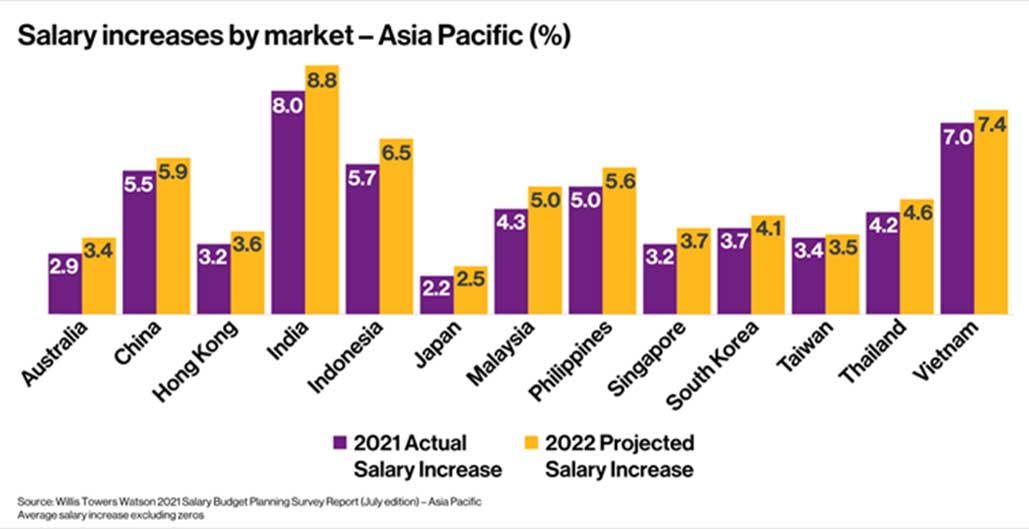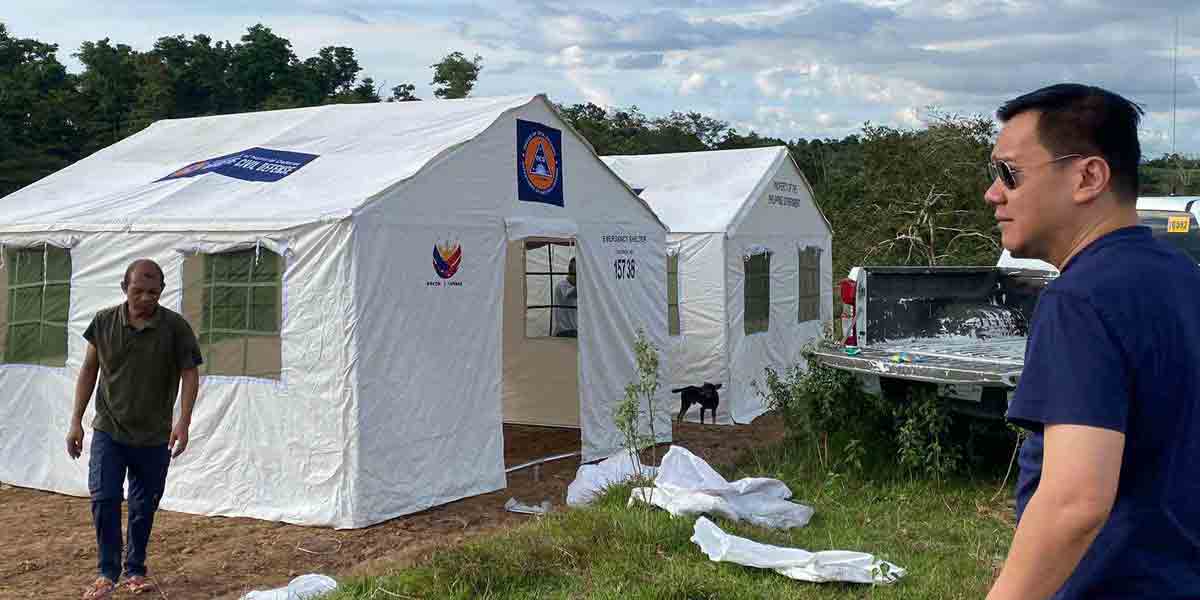
Average salary increases in the Philippines, excluding zeros
Pay rises are making a comeback. Companies in the Philippines plan to give employees higher increases next year as they recover from the economic fallout of the pandemic and face mounting challenges in attracting and retaining employees, according to the latest Salary Budget Planning Report by Willis Towers Watson (NASDAQ: WLTW), a leading global advisory, broking and solutions company.
As a fast-growing region, markets in Asia Pacific (APAC) will see the highest 2022 salary increases, while countries in North America and Western Europe are expected to stay flat, and the rest of the regions taking longer to recover and stabilize. Companies in APAC are projecting average salary increases of 5.3% for executives, management and professional employees, and support staff next year. This is up from the average 4.9% increases employees were granted this year. Employers in the Philippines are also expecting an average salary budget increase of 5.6% in 2022, a slight increase from 5% in 2021.

Companies in MedTech, Business Support Services (including Business Process Outsourcing) and Manufacturing industries reported the highest average salary budget increments between 5.2% to 5.7% this 2021.
Companies in MedTech, Business Support Services (including Business Process Outsourcing) and Manufacturing industries reported the highest average salary budget increments between 5.2% to 5.7% this 2021.

Average salary increases in the Philippines, excluding zeros
“Although there is a positive outlook among businesses, companies are also monitoring the Philippine economic landscape, hence, organizations may further adjust their 2022 salary budget forecast in the later part of this year,” said Chantal Querubin, Rewards, Data & Software Practice Leader, Philippines, at Willis Towers Watson.
Companies are also going through extensive planning in 2021 and will be experimenting with hybrid models that better fit employees’ lifestyles, which may also result in long-term business savings. The buoyant job market and the challenge of engaging employees outside of an office environment mean that companies will need to pay top dollar to hold on to their top talent.
“Attracting and retaining employees remains a major challenge for employers. In fact, the current environment makes these challenges even more difficult. Employers need to deliver a sound employee value proposition supported by comprehensive Total Rewards programs. Beyond competitive salaries, which are table stakes at the moment, companies also need to focus their spend on a diverse set of benefits, wellbeing and upskilling programs to drive employee engagement,” added Querubin.
On business outlook, close to 51% of companies in the Philippines expect their business performance to be in line with target while 43.8% expect it to be ahead of target this year. Organizations are also likely to create more jobs in functions such as sales, information technology and engineering in the next 12 months.
The survey further shows that 65.3% of companies plan to maintain headcount in the next 12 months with 25.8% looking to add while only 8.9% planning to reduce headcount largely due to the negative impact of the pandemic on their businesses. Almost all the companies surveyed (98.1%) are expecting to proceed with their regular salary review in 2022.
“Companies are between a rock and a hard place when it comes to compensation planning. On the one hand, employers need to continue effectively managing fixed costs as they rebound from the pandemic. On the other hand, companies recognize they need to boost compensation, especially in sectors where there may be a manpower crunch. This situation has driven organizations to explore alternative options to fixed pay increases, including sign-on, retention bonuses, functional and skill premiums, mid-year adjustments or pay increases,” added Querubin.



















